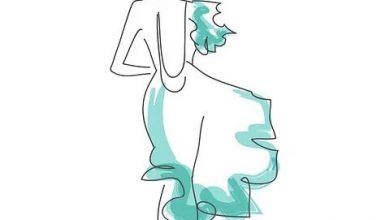
A Leave-Taking by A.C. Swinburne deals with the theme of unrequited love. It details the responses of a man who has been scorned by the woman he loves and is in the style of a dramatic monologue. The 42-line poem is split into six septets, that is, stanzas with seven lines each. The rhyme scheme is AABABAA, and the first and last line of each stanza consists of a repetition of an aspect of the woman’s reaction to the poet’s actions.
A Leave Taking | Summary and Analysis
Lines 1-7
Let us go hence, my songs; she will not hear.
Let us go hence together without fear;
Keep silence now, for singing-time is over,
And over all old things and all things dear.
She loves not you nor me as all we love her.
Yea, though we sang as angels in her ear,
She would not hear.
The poem is written as though the poet is talking to himself, as if it is a discussion in the poet’s own mind as he is forced to accept that the object of his affections feels nothing for him. He begins with an action, encouraging himself to go away from her and to stop showering her with his affection. “Let us go hence together without fear” means that he is looking forward to moving on from the pain of rejection without the fear of loneliness and without the fear of what comes next. Additionally, it may also represent that he plans to make a decision that he is unsure about and is bolstering himself in the face of this decision.
He decides to leave, as the time for his loving serenades is long past, and because she has no interest in listening to him wooing her any longer. He replaces his songs with silence, encouraging contemplation of the fact that the woman does not love him in the way he so desperately desires. The poet also subtly implies that he feels that the woman is selfish as she does not feel a strong attraction to him, and thus she loves only herself and nobody else. This, of course, is exaggerated, just as he exaggerates his own abilities, saying that he “sang as angels in her ear,”. She, however, refuses to hear him or even give him the time of day.
Anaphora is used in the repetition of “Let us” in the first two lines of this stanza. Also, we see a strong use of contrast in this stanza that continues throughout the poem, as there is a noticeable difference between the constant activity of the poet and the passive responses of the woman he claims to love.
A Leave Taking | Analysis, Lines 8-14
Let us rise up and part; she will not know.
Let us go seaward as the great winds go,
Full of blown sand and foam; what help is here?
There is no help, for all these things are so,
And all the world is bitter as a tear.
And how these things are, though ye strove to show,
She would not know.
He repeats his desire to move on, claiming that she will not care even if he leaves. However, this sort of repetition provides the image of a person who keeps repeating their plan to leave, hoping to be asked to stay. Someone who is waiting for an affirmation or validation from those around them will create a situation in which people are forced to express their desire for the person’s presence, and in the same way, the poet keeps repeating that he will go, seemingly with the hope that the woman will turn around and beg him to stay instead.
Without that kind of validation, he decides to go far away from her, blowing with the wind to find a new place. He clearly thinks a lot of himself, as he compares himself with the great winds, and thus goes where they go. Here, the poet’s tendency to use the motif of the ocean comes out, as he deices to move seaward, thus bringing in the use of the ocean as a player in the poem. He describes himself as “Full of blown sand and foam”, so he is full of things but has no real weight and dissipates quickly. His love lies unappreciated, ad it is like the foam on the sea, fleeting in her eyes because she doesn’t value it at all. There is no help for him, as he feels alone in his rejection, and thus calls the world a bitter place. He falls into the pit of hating everything and everyone, bemoaning how all the work he put into catching her attention was deemed useless because she wouldn’t even know it.
This also shows that it is possible that he is loving her from afar, and she may not actually know who he is. He may be deciding on his own that she will reject him and does not give her the chance to make the decision herself. He is possibly lamenting a rejection that he never actually had to face at all. However, as the poem goes on, we catch glimpses of him mentioning the time that they spent together, so this is only a vague or a short-term possibility.
As he decides that the world is a fount of bitterness, he accepts that this is the life he is forced to live. Saying “for all these things are so,” and “And how these things are” he shows that he is accepting the thought that he just has to go with the flow because such is life.
Here, again, the poet uses the device anaphora with “Let us” in the first and second lines of the stanza. The device Hyperbole is used in “all the world is bitter”.
A Leave-Taking | Analysis, Lines 15-21
Let us go home and hence; she will not weep.
We gave love many dreams and days to keep,
Flowers without scent, and fruits that would not grow,
Saying ‘If thou wilt, thrust in thy sickle and reap.
All is reaped now; no grass is left to mow;
And we that sowed, though all we fell on sleep,
She would not weep.
Now, finally, he decides to really leave, knowing that she will not share his pain, knowing that she will not cry as he cries. His search for love ended up unfruitful, though he gives the ones he loves as much as he can, they never blossom the way he desires. The flowers remain without scent and the fruits do not grow because the person who needs to appreciate these gestures does not. Thus, just like his love, they remain stagnant and are as good as dead. The flowers have no meaning if his love does not want them, and the fruit of his love does not grow if it is not nurtured.
The poet is dramatic as can be in his assertion “‘If thou wilt, thrust in thy sickle and reap.” He is basically that the woman is stabbing him in the heart by not accepting his love. He believes that her decision to ignore his gifts and reject his love is equivalent to gouging his heart with a blade. He laments the fact that his efforts remain unrecognized, and that she would feel no pain from his departure.
The poet begins to act as though he is entitled to her love, and this combined with the ego that he has displayed is quite the combination. In the modern-day, he would probably be the type of person to say he’s been “friend-zoned”, but with a lot more drama. The friend-zone, however, doesn’t exist now and didn’t exist then, and he just seems incapable of accepting that every single thing does not go his way.
A Leave-Taking | Analysis Lines 22-28
Let us go hence and rest; she will not love.
She shall not hear us if we sing hereof,
Nor see love’s ways, how sore they are and steep.
Come hence, let be, lie still; it is enough.
Love is a barren sea, bitter and deep;
And though she saw all heaven in flower above,
She would not love.
In this stanza, we see a true expression of his pain. His knowledge that he will not have her love has led him into the depths of despair. His comments about going to rest and saying, “it is enough.” is reminiscent of suicidal ideation. He implies that the barren world makes him want to give up entirely because if he cannot have this, he cannot anything.
The poet uses very strong imagery in his explanation of love. He calls it a barren sea, deep and bitter from her lack of love. He no longer wants her love, and in fact, no longer seems to want anything. Though she had him in her grasp, she refused to love him, and he cannot handle it.
The poet uses the metaphor of the sea to represent love and its characteristic in his mind. Hyperbole is used again in “all heaven in flower above,”
A Leave Taking | Analysis Lines 28-35
Let us give up, go down; she will not care.
Though all the stars made gold of all the air,
And the sea moving saw before it move
One moon-flower making all the foam-flowers fair;
Though all those waves went over us, and drove
Deep down the stifling lips and drowning hair,
She would not care.
The story moves on, and we see that he has entirely given up on having any chance with her. He decides to go down, in the same vein as a captain going down with his ship. He gives up on this love yet knows that it makes no difference to her. He has entered the bitterness of love, and he has found his place in it. She cares not for him and will not care should he go deep into the sea of depression and despair.
The poet builds a visual of a man walking into the deep dark ocean all by himself at night, with the stars lighting up the sky, and the rolling waves of the sea surrounding him. Here, it seems both literal and figurative, of the bitterness of love drowning him in his depression, but also the literal sea pulling him down, stifling his breath, drowning him for real. This, again, is an action undertaken by him as a dramatic response to a rejection, supported by a lack of focus on his own abilities, and instead concentrating on what he wants and cannot get.
Here, alliteration is used in “the foam-flowers fair;” and “Deep down”.
A Leave Taking | Analysis, Lines 36-42
Let us go hence, go hence; she will not see.
Sing all once more together; surely she,
She too, remembering days and words that were,
Will turn a little toward us, sighing; but we,
We are hence, we are gone, as though we had not been there.
Nay, and though all men seeing had pity on me,
She would not see.
The last stanza brings a repetition of the lines at the beginning, yet here it is not an encouragement to leave the woman, but an encouragement to leave life behind. He keeps it to himself, so he goes alone, knowing that she would not look for him. Additionally, she will no longer see him anywhere, as he kills himself and his ability to love.
But the irony is that though he repeats that “She would not see.”, she does finally turn to look at him, hearing his song, and remembering what they had. Still, he has nothing more to give her, and he left without a word. He made the decision to pull himself out of her life as though he had never played a role in it at all. She did not see the strength of his love, and everyone pitied him for it. This one-sided narrative paints her as selfish and uncaring, but the pity of others comes from his visceral responses to her setting boundaries and no longer wanting to be with him. The pity of others comes from his performative drama, as he knows that this is no longer what she wants, but he seems incapable of accepting it truly. His actions should have been enough, he says, and it may have been enough for someone who desired to be with him, rather than someone who doesn’t.
A Leave Taking | About The Poet
A.C. Swinburne was born on 5 April 1837, in London.
He was a playwright, writer, poet, and literary critic. He was recognized as a master of poetic form, meter, and rhyme, and was a symbol of rebellion against the conservative values of the Victorian Era. Swinburne was the creator of the poetic form Roundel, which is a variation of the French Poetic form Rondeau.
He was well-known for his expertise in lyricism and was influenced by Shakespeare, Shelley, Tennyson, And Rossetti. The content of his poem was called indecent by several critics, but they still recognized the beauty of his imagery and his style of expression. However, he was accused of putting more value into the sound of the rhymes in his poetry, instead of the actual meaning of the poems.
His work was famous while he was alive, but its popularity steadily declined after his death. Many of his poems follow similar metaphors of ocean, death, and time, and he also wrote on the theme of love quite often. Some notable works are “Poems and Ballads” “Atlanta in Calydon” and “Songs before Sunrise”.
He died on 10 April 1909, in London.


